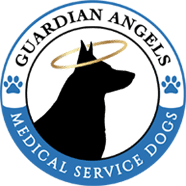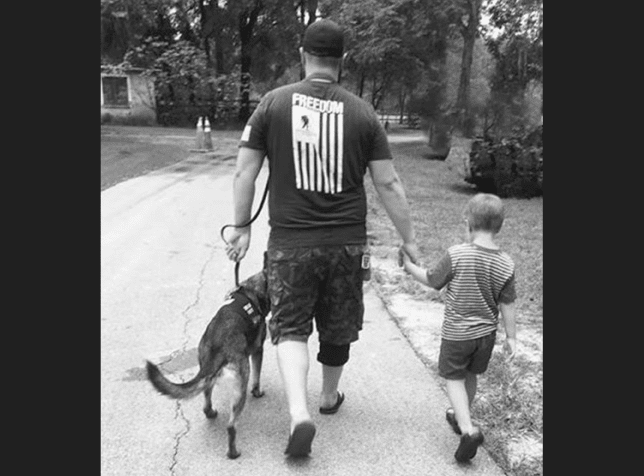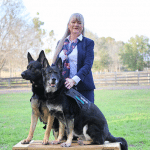April is the month of the military child, and children hold a special place in our hearts here at Guardian Angels. Many of our recipients suffer from PTS, and as a result, their children can be impacted by Intergenerational PTS.
Intergenerational PTS is defined as trauma that is passed down from those who directly experience an incident, such as a parent, to their children or subsequent generations. This type of trauma may begin with a traumatic event that affects an individual, events that affect multiple family members, or trauma that affects a larger community, racial, ethnic, cultural, or other groups.
Doctors say symptoms will vary depending on the family member. Children can experience outbursts of anger, extreme quietness, or personality traits that may indicate unhealthy behavior. They may not know how to deal with PTS, so they will act out in other ways.
Our very own COO, Mary Jo Brandt, grew up as the daughter of a combat veteran suffering from PTS. This is her story…
“I grew up in a home with my adopted father, a Vietnam veteran who I loved (and still love) with all my heart. I only heard a few things while eavesdropping and didn’t really understand how my dad’s time in Vietnam impacted him. When it comes to what happened in war, it follows you home. You can’t outrun it, and you can’t make it go away.
When veterans returned from Vietnam, what happened to the soldiers wasn’t discussed or dealt with. As a kid, you don’t know what PTS is. Some people end up taking their struggles out on their children. I was very lucky that my father was not abusive.
PTS drives some to self-medicate, but my dad didn’t do that. He chose to relive his combat experiences with war movies. This put him in a place where he was angry, and it caused his night terrors to start again.
For me, it was the feelings and the emotions. You didn’t bring friends over because you weren’t sure what the triggers were. You’re standing there as a kid, and you don’t know what is happening or what is wrong with your dad, your mom, your parents. As a child growing up with trauma, I figured out how to survive.
I became the mediator. You start to take your own emotions and push them down.
You let people walk all over you. With the help of a therapist on my journey, I’ve had to work things through and recognize you get to a point where you deal with it, or it breaks you.
As an adult, I saw my dad paired with a service dog when I was grown and out of the house, and I was able to see the positive changes he went through. Our experience as a family living with intergenerational PTS should never overshadow all the good things we had.
I recommend that anyone who has experienced or is experiencing PTS reach out to a professional. For me, once I started therapy, I realized I had buried so many emotions. To this day, I do have a brick wall; I don’t let people in. That is my coping mechanism. You want to take the time to look at whether your coping is detrimental to leading a healthy life.
This experience is one of the many reasons I am part of Guardian Angels Medical Service Dogs. At Guardian Angels, we assist many veterans with regaining their independence after their service to our country. Our medically trained service dogs help individuals in a variety of ways, including managing PTS symptoms. At Guardian Angels, we work to unleash the power to heal for our veterans, first responders, and others in need.”
- Celebrate Michigan’s Military: A Decade of Honoring our Heroes - March 4, 2024
- Celebrating Carol Borden’s 70th Birthday with a Special Cause - January 17, 2024
- The Mutt Strut Event Recap - October 3, 2023





